#Yan Lianke
Text
China's censorship is not as rigorous as everyone thinks. The self-censorship of the authors is much worse. Yan Lianke
New Post has been published on https://china-underground.com/2019/09/01/chinas-censorship-is-not-as-rigorous-as-everyone-thinks-the-self-censorship-of-the-authors-is-much-worse-yan-lianke/
China's censorship is not as rigorous as everyone thinks. The self-censorship of the authors is much worse. Yan Lianke
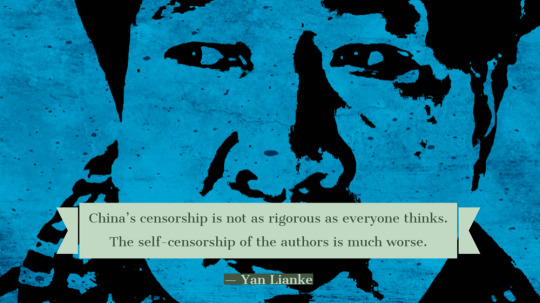
Origin: From the documentary “China on China, Culture for Billions” by Schulz Contreras, Lisbet & Jarnebrink, Lollo.
“China’s censorship is not as rigorous as everyone thinks. The self-censorship of the authors is much worse.” Yan Lianke
Yan Lianke (阎连科, born 1958) is one of the most respected Chinese novelists and his production includes novels and short stories and his books are translated into many languages.
youtube
Quote at 2:25
His work is highly satirical, which has resulted in some of his most renowned works being banned in China.
The cultural production destined for the Chinese market is strongly subject to censorship. Self-censorship is a problem that every author, writer, and director has to face sooner or later in China.
Quotes about censorship, quotes about China
#Censorship, #CensorshipInChina, #YanLianke
1 note
·
View note
Text
Romans du “réalisme magique”. Gabriel Garcia Marquez, Cent ans de solitude ; Salman Rushdie, Les Enfants de minuit ; Yan Lianke, La Fuite du temps - Caroline Lepage, Marianne Hillion, Philippe Postel
2 notes
·
View notes
Text
10 interesting Chinese novels
Strange Beasts of China by Yan Ge
Strange Beasts of China is set in the city of Yong’an. Here, many races of humanoid ‘beasts’ live amongst the humans, in a similar fashion to Tolkien’s elves and dwarves.
These beasts all have aesthetic and behavioural characteristics which identify them as part of the Sacrificial Beasts, Flourishing Beasts, Sorrowful Beasts etc. (booksandbao)
Fu Ping by Wang Anyi
Fu Ping is set in Shanghai, at a moment in time that is neither modern nor ancient, as the Cultural Revolution of Mao Zedong and the Communist Party has forever changed the landscape of China. (booksandbao)
Monkey King by Wu Cheng’en
Sun Wukong travels and studies and gets ever stronger until he has mastered death itself and ends up picking a fight with every angel in heaven. He is then sealed beneath a mountain for 500 years by Buddha himself.
The rest of the novel follows the fabled journey to the West, as a young monk is tasked by heaven to deliver some scriptures from China to India.
Early on his travels, he stumbles across the sealed Monkey King, frees him, and takes him on as an apprentice in an attempt to reform the wild Sun Wukong. (booksandbao)
The Shadow Book of Ji Yun by Ji Yun
Ji Yun was an 18th Century Chinese philosopher and politician who wrote a frankly obscene number of short accounts concerning supernatural phenomena and spiritual experiences.(booksandbao)
The Three Body Problem by Cixin Liu
Set against the backdrop of China's Cultural Revolution, a secret military project sends signals into space to establish contact with aliens. An alien civilization on the brink of destruction captures the signal and plans to invade Earth.(us.macmillan)
Waste Tide by Chen Qiufan
In Chinese science fiction author Chen Qiufan's debut novel Waste Tide, a young woman finds herself transformed and stuck in the midst of a vicious power struggle between factions in the polluted, fictitious Silicon Isle in Guiyu, China. (theverge)
Chronicle of a Blood Merchant by Yu Hua
A man named Xu Sanguan learns that you can sell your own blood for a good price — all you have to do is make sure to drink an inordinate number of bowls of water before you go. As he grows into a husband and father, part of a complicated family, he continues to return to the hospital through famine and struggle. This book is compelling for the twists and turns of its family turmoil, but also for the description of this blood-selling subculture and the questions it raises. What does it mean to be family — is it only defined by blood? And what if the only capital you have is your own body, your own energy, your own blood?(bookriot)
The Day the Sun Died by Lan Yianke
One evening in early June, in a small Chinese town, Li Niannian notices that something is wrong. Everyone should be going home, heading to sleep. But instead, they’re all wandering in the darkness — sleepwalking. And over the course of one night, these sleeping townspeople will fall into chaos: secrets revealed, violence unleashed, past hurts unearthed. Lianke’s novel is a dystopian tale meant to challenge the “Chinese dream” promoted by President Xi Jinping, parodying the sunny vision of the government of what the Chinese people believe, contrasting it with the shame and madness of what’s unearthed in the darkness of night as Li Niannian and his father try to wake up their town. (bookriot)
I Live in the Slums by Can Xue
Can Xue’s works are famously surreal, strange, and amorphous. So her absurd short stories are probably the best place to try out her style. In this book, the characters flee and shift, trying to fit in, trying to find a place free of abuse, where they can be safe, in a world defined by scattered-ness, by lack of community, by inequality. A young man searches for a magic pond, a Kafka-esque rat-person tries to find peace, a magpie protects its partner from human neighbors. Can Xue’s pen name refers to the snow left over at the end of winter — she chose to write under a pseudonym to hide her gender while publishing her radical, experimental fiction. (bookriot)
The Seventh Day by Yu Hua
Arguably, the prolific and acclaimed Yu Hua’s best-known novel in English, The Seventh Day, is the story of Yang Fei, a foundling brought up in the Chinese countryside who becomes an outsider to its society, only to die and roam the afterlife revisiting the people he has lost in the course of his life. The result is a composite of China’s panoramic history with all of its highs and lows. (theculturetrip)
@mrwrightsenglishclass
5 notes
·
View notes
Note
what books did you buy!
i bought infância by graciliano ramos (very important brazilian author! this is a book about his childhood, something i always love reading), dream of ding village by yan lianke, a book by chaim nachman bialik (i believe this a brazilian edition only, but it's a compilation of some of his short stories), voice over by céline curiol and china lover by ian buruma.
#this bookstore is actually part of a fair#that only happens twice a year#so i only buy books twice a year#and i was extremely surprised with the variety of authors#jewish. arabic and chinese! when it's usually full of north american authors#i can't wait to read <3
15 notes
·
View notes
Note
23, 31, 39 for the Book Asks 🌻
Thank you sm!!
23. The book with the prettiest cover

The cover pulled me in!
31. Did you read any translations?
I did!
En Kvinnas Frigörelse by Édouard Louis, read in Swedish, originally french ((Combats et métamorphoses d'une femme)
The Spirit of Science Fiction by Roberto Bolaño, read in English, originally Spanish.
Tre bröder : minnen av min familj by Yan Lianke, read in Swedish, originally in English I think? (Three Brothers: Memories of My Family)
Kvinnor jag tänker på om natten by Mia Kankimäki, read in Swedish, originally in Finish (Naiset joita ajattelen öisin)
Perfume: The Story of a Murderer by Patrick Süskind, read in English, originally in German (Das Parfum. Die Geschichte eines Mörders)
Snow Country by Yasunari Kawabata, read in English, originally in Japanese (雪国 [Yukiguni])
Sweet Days of Discipline by Fleur Jaeggy, read in English, originally in Italian (I beati anni del castigo)
Selected Poems by Cavafy, read in English, originally in Greek
Nutcracker by E.T.A. Hoffmann, read in English, originally in German (Nussknacker und Mausekönig)
39. Five books you absolutely want to read next year?
Aahhh I have so many, but so little time rip
Black Girl in Paris by Shay Youngblood
Vile Bodies by Evelyn Waugh
Anything by Cat Sebastian. She really became a fave this year
The End of Eddy by Édouard Louis (probably in Swedish tho because that's the edition I own)
The Years by Annie Ernaux (which I bought before she won the Nobel Prize thank you very much)
End of year book tag
7 notes
·
View notes
Text
9 people I want to know better
Thank you @notetaeker @debussyandbooks @anxiousstudybuddy for tagging me 🦑🦑🦑
Last song illusion by aespa on loop until my ears bleed
Last show I completely forgot, but the ones I really enjoyed were sweet home and i may destroy you
Currently watching mostly celebrity cringe moments on youtube
Currently reading grotesque by natsuo kirino and the atlas six - and also books I’ve opened but haven’t finished bc I need a specific mood to read them like anima mundi by susanna tamaro, il giardino segreto by banana yoshimoto, gli anni i mesi i giorni by Yan Lianke
Tagging 👀 @lostin--thoughts @matsuwaaa @aravirstudies @simena (I know you only post art but I’m really curious) @hanne-sblog @embodiedflorescense @mugoki @beautifulshortlover @blvksesame 👀
11 notes
·
View notes
Text
Ten Interesting Chinese Novels
1. To Live by Yu Hua
From the author of Brothers and China in Ten Words this celebrated contemporary classic of Chinese literature was also adapted for film by Zhang Yimou. This searing novel, originally banned in China but later named one of that nation's most influential books, portrays one man's transformation from the spoiled son of a landlord to a kindhearted peasant. After squandering his family's fortune in gambling dens and brothels, the young, deeply penitent Fugui settles down to do the honest work of a farmer. Forced by the Nationalist Army to leave behind his family, he witnesses the horrors and privations of the Civil War, only to return years later to face a string of hardships brought on by the ravages of the Cultural Revolution. Left with an ox as the companion of his final years, Fugui stands as a model of gritty authenticity, buoyed by his appreciation for life in this narrative of humbling power. (Goodreads.com)
2. Love in a Fallen City by Eileen Chang
Eileen Chang is one of the great writers of twentieth-century China, where she enjoys a passionate following both on the mainland and in Taiwan. At the heart of Chang's achievement is her short fiction—tales of love, longing, and the shifting and endlessly treacherous shoals of family life. Written when Chang was still in her twenties, these extraordinary stories combine an unsettled, probing, utterly contemporary sensibility, keenly alert to sexual politics and psychological ambiguity, with an intense lyricism that echoes the classics of Chinese literature. Love in a Fallen City, the first collection in English of this dazzling body of work, introduces American readers to the stark and glamorous vision of a modern master. (Goodreads.com)
3. Peony in Love by Lisa See
In seventeenth-century China, three women become emotionally involved with The Peony Pavilion, a famed opera rumored to cause lovesickness and even death, including Peony, the cloistered daughter of a wealthy scholar, who succumbs to its spell only to return after her death as a "hungry ghost" to haunt her former fiancé, who has married another. (Goodreads.com)
4. Death’s End by Lin Cixin
Now this epic trilogy concludes with Death's End. Half a century after the Doomsday Battle, the uneasy balance of Dark Forest Deterrence keeps the Trisolaran invaders at bay. Earth enjoys unprecedented prosperity due to the infusion of Trisolaran knowledge. With human science advancing daily and the Trisolarans adopting Earth culture, it seems that the two civilizations will soon be able to co-exist peacefully as equals without the terrible threat of mutually assured annihilation. But the peace has also made humanity complacent. Cheng Xin, an aerospace engineer from the early 21st century, awakens from hibernation in this new age. She brings with her knowledge of a long-forgotten program dating from the beginning of the Trisolar Crisis, and her very presence may upset the delicate balance between two worlds. Will humanity reach for the stars or die in its cradle? (Goodreads.com)
5. Death of a Red Heroine by Qiu Xialong
A young “national model worker,” renowned for her adherence to the principles of the Communist Party, turns up dead in a Shanghai canal. As Inspector Chen Cao of the Shanghai Special Cases Bureau struggles to trace the hidden threads of her past, he finds himself challenging the very political forces that have guided his life since birth. Chen must tiptoe around his superiors if he wants to get to the bottom of this crime, and risk his career—perhaps even his life—to see justice done. (Goodreads.com)
6. The Day the Sun Died by Yan Lianke
One dusk in early June, in a town deep in the Balou mountains, fourteen-year-old Li Niannian notices that something strange is going on. As the residents would usually be settling down for the night, instead they start appearing in the streets and fields. There are people everywhere. Li Niannian watches, mystified. But then he realises the people are dreamwalking, carrying on with their daily business as if the sun hadn’t already gone down. And before too long, as more and more people succumb, in the black of night all hell breaks loose. Set over the course of one night, The Day the Sun Died pits chaos and darkness against the sunny optimism of the ‘Chinese dream’ promoted by President Xi Jinping. We are thrown into the middle of an increasingly strange and troubling waking nightmare as Li Niannian and his father struggle to save the town, and persuade the beneficent sun to rise again. (Goodreads.com)
7. Women of the Silk by Gail Tsukiyama
Sent by her family to work in a silk factory just prior to World War II, young Pei grows to womanhood, working fifteen-hour days and sending her pay to the family who abandoned her. In "Women of the Silk" Gail Tsukiyama takes her readers back to rural China in 1926, where a group of women forge a sisterhood amidst the reeling machines that reverberate and clamor in a vast silk factory from dawn to dusk. Leading the first strike the village has ever seen, the young women use the strength of their ambition, dreams, and friendship to achieve the freedom they could never have hoped for on their own. Tsukiyama's graceful prose weaves the details of "the silk work" and Chinese village life into a story of courage and strength. (Goodreads.com)
8. The Concubine’s Daughter by Pai Kit Fai
In the bestselling tradition of Memoirs of a Geisha, a riveting saga of early twentieth-century China, where a mother and a daughter fight to realize their destinies in a world where women could still be bought and sold. Lotus Feet. He would give his daughter the dainty feet of a courtesan. This would enhance her beauty and her price, making her future shine like a new coin. He smiled to himself, pouring fresh tea. And it would stop her from running away… When the young concubine of an old farmer in rural China gives birth to a daughter called Li-Xia, or “Beautiful One,” the child seems destined to become a concubine herself. Li refuses to submit to her fate, outwitting her father’s orders to bind her feet and escaping the silk farm with an English sea captain. Li takes her first steps toward fulfilling her mother’s dreams of becoming a scholar — but her final triumph must be left to her daughter, Su Sing, “Little Star,” in a journey that will take her from remote mountain refuges to the perils of Hong Kong on the eve of World War II. (Goodreads.com)
9. Red Mandarin Dress by Qiu Xialong
Chief Inspector Chen Cao of the Shanghai Police Department is often put in charge of politically sensitive cases. Having recently ruffled more than a few official feathers, when he is asked to look into a sensitive corruption case he takes immediate action—he goes on leave from work. But while on vacation, the body of a murdered young woman is found in a highly trafficked area and the only notable aspect is that she was redressed in a red mandarin dress. When a second body appears, this time in the People's Park, also in precisely the same kind of red mandarin dress, the newspapers start screaming that Shanghai is being stalked by its first sexual serial killer. With the Party anxious to resolve the murders quickly, Chen finds himself in the midst of his most potentially dangerous and sensitive case to date. (Goodreads.com)
10. Wild Ginger by Anchee Min
The beautiful, iron-willed Wild Ginger is only in elementary school when we first meet her, but already she has been singled out by the Red Guards for her "foreign-colored eyes." Her classmate Maple is also a target of persecution. It is through the quieter, more skeptical Maple, a less than ardent Maoist whose father is languishing in prison for a minor crime, that we see this story to its tragic end. The Red Guards have branded Wild Ginger's deceased father a traitor and eventually drive her mother to a gruesome suicide, but she fervently embraces Maoism to save her spirit. She rises quickly through the ranks and is held up as a national model for Maoism. Wild Ginger now has everything, even a young man who vies for her heart. But Mao's prohibition on romantic love places her in an untenable position. Into this sexually charged situation steps Maple, creating an uneasy triangle that Min has portrayed with keen psychological insight and her characteristic gift for lyrical eroticism. (Goodreads.com)
3 notes
·
View notes
Text
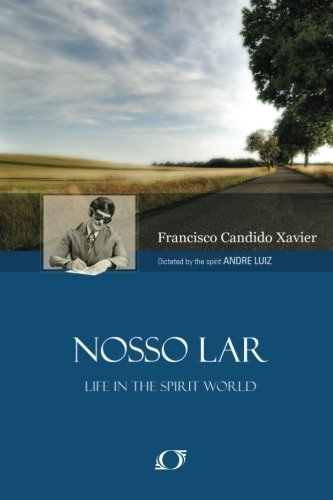


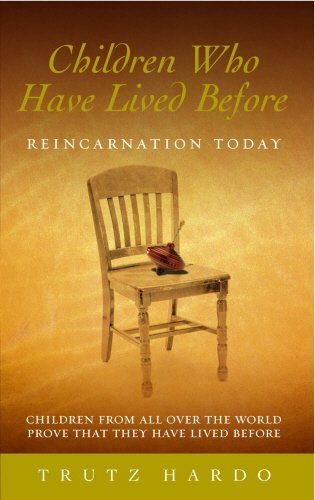

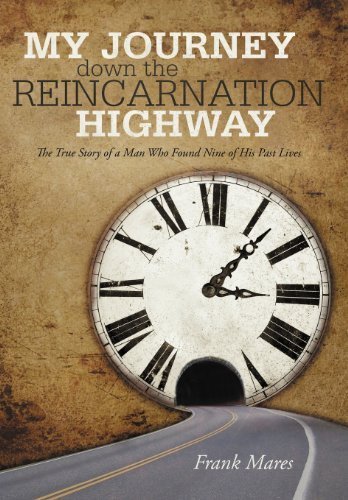
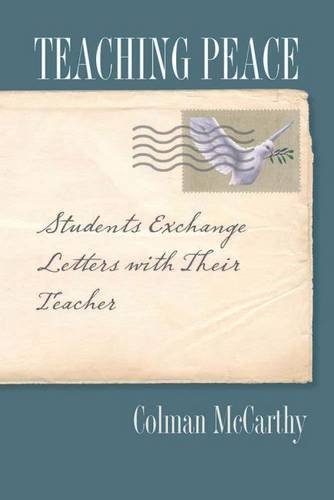

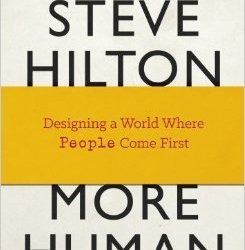
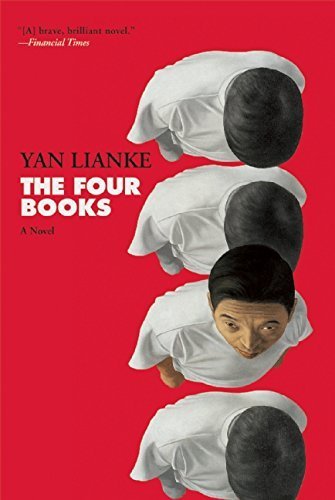
Nosso Lar: Life in the Spirit World by Francisco Candido Xavier and the Spirit Andre Luiz
Chicken Soup for the Soul: Dreams and Premonitions: 101 Amazing Stories of Miracles, Divine Intervention, and Insight by Amy Newmark and Kelly Sullivan Walden
Sacred Journey of the Peaceful Warrior by Dan Millman
Children Who Have Lived Before: Children From All Over the World Prove That They Have Lived Before by Trutz Hardo
Old Souls: Compelling Evidence From Children Who Remember Past Lives by Tom Shroder
My Journey Down the Reincarnation Highway: The True Story of a Man Who Found Nine of His Past Lives by Frank Mares
Teaching Peace: Students Exchange Letters with Their Teacher by Colman McCarthy
Animal Farm by George Orwell
More Human: Designing A World Where People Come First by Steve Hilton
The Four Books by Yan Lianke
0 notes
Text
I just saw a post that did this, and I wanted to make my own version! (I’m definitely cheating via ties, changing whether articles count, etc.) My A-Z book list:
A: Alchemyst (of the Nicholas Flammel books)
B: Brave New World
C: A Confederacy of Dunces (or Cien años de soledad, or Cloud Atlas, or La caverna de las ideas; tie #1)
D: The Day the Sun Died by Yan Lianke
E: Emma by Jane Austen
F: Fun Home by Alison Bechdel
G: Galápagos by Kurt Vonnegut
H: Hard-Boiled Wonderland and the End of the World
I: Infinite Jest
J: Jane Eyre (haven’t read yet)
K: Kiss of the Spider Woman (Beso de la mujer araña)
L: Las intermitencias de la muerte
M: The Master and Margarita
N: The Name of the Rose by Umberto Eco
O: Of Mice and Men
P: Pride and Prejudice and Zombies
Q: FUCK IT DON QUIXOTE GETS THE Q SPOT FUCK THE RULES
R: River of Teeth
S: Serve the People! by Yan Lianke
T: This is How You Lose the Time War (or The Terror, I can’t pick 😭 or Turn of the Screw fuck you)
U: Uzumaki by Junji Ito
V: The Vine That Ate the South
W: When We Cease to Understand the World
X: I’d rather keep this list authentic than pretend I have a book that starts with X that I can recall that have strong feelings about.
Y: *radio static*
Z: The Zombie Survival Guide (eyyy middle school throwback)
0 notes
Text
The Anti-Christian
Audio-book Review
By Chet Yarbrough
Blog: awalkingdelight)
Website: chetyarbrough.blog
The Four Books
By:
Yan Lianke, Translated by Carlos Rojas
Narrated
by: George Backman
Yan Lianke (Chinese author of novels and short stories based in Beijing. Received the Franz Kafka Prize in 2014. Winner of the Man Booker International Prize twice.)
“The Four Books” is a satire exposing the…

View On WordPress
0 notes
Link
New story on NPR: 'Heart Sutra' is a satire that skewers religious institutions without mocking faith https://ift.tt/mHB2Fat
0 notes
Text
China's censorship is not as rigorous as everyone thinks. The self-censorship of the authors is much worse. Yan Lianke
New Post has been published on https://china-underground.com/2019/09/01/chinas-censorship-is-not-as-rigorous-as-everyone-thinks-the-self-censorship-of-the-authors-is-much-worse-yan-lianke/
China's censorship is not as rigorous as everyone thinks. The self-censorship of the authors is much worse. Yan Lianke

Origin: From the documentary “China on China, Culture for Billions” by Schulz Contreras, Lisbet & Jarnebrink, Lollo.
“China’s censorship is not as rigorous as everyone thinks. The self-censorship of the authors is much worse.” Yan Lianke
Yan Lianke (阎连科, born 1958) is one of the most respected Chinese novelists and his production includes novels and short stories and his books are translated into many languages.
youtube
Quote at 2:25
His work is highly satirical, which has resulted in some of his most renowned works being banned in China.
The cultural production destined for the Chinese market is strongly subject to censorship. Self-censorship is a problem that every author, writer, and director has to face sooner or later in China.
Quotes about censorship, quotes about China
#Censorship, #CensorshipInChina, #YanLianke
0 notes
Text
fiction > books that I’ve liked: most of kerouac’s work, classic american noir, life of pi by yann martel, the picture of dorian gray by oscar wilde, l’étranger (the stranger) by albert camus, the four books by yan lianke, the bridge over the river kwai by pierre boulle, american psycho by bret easton ellis, land without thunder by grace ogot
0 notes
Quote
¿Qué vamos a hacer cuando se nos eche encima el mañana?
Días, meses, años. Yan Lianke
0 notes